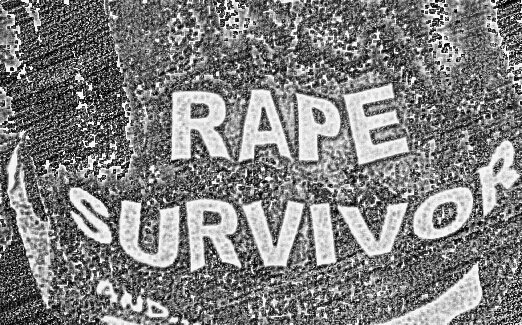
An anti-rape culture campaign began at Rhodes University recently which is part of a larger movement working in conjunction with Stellenbosch University. Students were encouraged to support the campaign by sharing photographs on social media, statuses and tweets stating “Chapter 2.12” AND NOTHING ELSE.
Rape Culture was coined in the 1970’s by feminists in the United States. It was designed to show the ways in which society blamed victims of sexual assault and normalized male sexual violence. However, the campaign also includes the different types of sexual violence against men and women. Even though women are the ones who are usually affected the most by rape culture, men too can be victims.
Rape culture is a South African and global problem affecting both genders, the awareness should stand against sexual abuse of any nature on or off campus. Rhodes University has in previous years responded to rape culture with campaign that established the RU Silent Protest which has gained participants in numbers through the years from 2007. Several other universities around South Africa have also participated in the protest during August. The RU Silent Protest provides a platform for women who have endured rape and sexual abuse to come forward and share their stories in a safe space. The RU Silent Protest also acknowledges that men also encounter sexual abuse, and creates a safe space where men too can come forward at the end of the Protest day to share their stories where there is no judgement.
The Rhodes SRC Facebook page has recently been full of accusations that a council member had raped a student even though the council member was not named. A lot of students wanted the perpetrator to be named and shamed. The SRC responded with shock and disappointed at allegations of a council member raping a student which came to light after the Chapter 2.12 campaign was launched on Monday. The SRC assures all students that have been victims of any form of violence that they will co-operate in any way to get to the bottom of the issue.
Chapter 2.12 refers to the South African Constitution chapter regarding safety and dignity of the student body.
Freedom and security of the person
12. (1) everyone has the right to freedom and security of the person, which includes the right
(a) not to be deprived of freedom of arbitrarily or without just cause;
(b) not to be detained without trial;
(c) to be free from all forms of violence from either public or private resources;
(d) not to be tortured in any way;
(e) And not to be treated or punished in a cruel, inhuman or degrading way.
(2) Everyone has the right to bodily and psychological integrity, which includes the right
(a) To make decisions concerning reproduction;
(b) to security in and control over their body; and
(c) not to be subjected to medical or scientific experiments without their informed consent.
The campaign received support from Dr Mabizela, along with the Director of the Library Ujala Satgoor, who spent the morning discussing the posters and the movement. However Campus Protection Unit (CPU) removed the posters that were used to raise awareness of the policies regarding sexual assault and rape on campus the morning after they were put up but the SRC succeeded in reposting them around the Library and Kaif area. Leaving students outraged by this new development and claim that management instructed people to remove the posters. Students have taken to social media to share their concerns on the matter.
